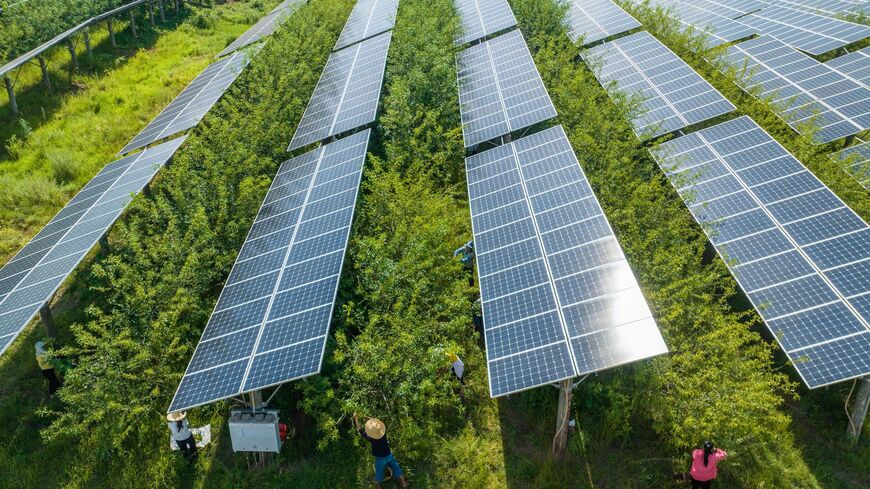Iraq's continuing struggles to provide domestic electricity are connected to geopolitics, including relations with Iran, the US and the Gulf States. China has recently joined this scramble, albeit differently.
As China’s climate change strategy evolves at home, the country dominates the world market for solar energy, especially in the global south. This shift, according to John Calabrese, a senior fellow at the Middle East Institute, “could portend a larger role for China in the MENA region’s growing renewables sector, especially in solar power production.” Thanks to China, solar energy in Iraq and Iraqi Kurdistan is becoming a reality on the official government levels as well as on corporate and individual levels.
The Iraqi government wants to produce up to 12 GW of solar energy by 2030. According to Reuters, the current Iraqi cabinet approved a $520.23 million proposal for a solar power plant with Power China in the country's southern Muthanna and Basra provinces. In May, Kurdistan Regional Government Prime Minister Masrour Barzani laid the foundation for a 25-megawatt power plant. Earlier, the Kurdistan region signed two deals for solar power projects in Erbil and Duhok. When the former consul general of China to Erbil, Ni Ruchi, met with the Kurdistan region minister of electricity, Kamal Mohammed, he remarked that Chinese companies are ready to invest in solar energy in the region.
Iraqi Kurdistan became more aware of solar energy around 2016, when China’s solar technology was coming to the international market. Chinese policies and growing domestic demand have enabled economies of scale and supported continuous innovation throughout the supply chain. The resulting cost decline of more than 80% has made China the only source for most solar technologies, according to Dashti Adil, a solar engineer from Erbil.
The chronic inability of the Iraqi and Kurdistan governments to cope with the soaring demand for electricity made solar a viable alternative source. Since the materials are affordable, accessible, and easy to import from China, small and medium-sized solar companies have mushroomed, especially in installation and supplies.
Iraq and Kurdistan still need big companies to invest in this area, but there are a number of legal, cultural and bureaucratic barriers. The absence of a public-private partnerships law hinders companies from investing. Consumers resent paying a higher price, and the current price is not profitable. Red tape is another problem. As an Iraqi official put it, "Acquisition procedures in Iraq are extremely complicated. It needs authorizations from at least 16 ministries and government bodies — Heritage, the Ministries of Culture, Environment, Defense, etc."
Muhammad Gardi, one of the local investors, claims that solar energy is quickly gaining popularity. In addition to the urban areas, it is empowering the rural and isolated communities that lack access to personal electric generators, he said.
Chinese advances in solar technology will alter China's reputation in a variety of ways, such as by increasing trust in Chinese high-tech. This will strengthen China's soft power strategy, and extend its economic influence — already prevalent in Iran, Syria and the Gulf — into Iraq.







